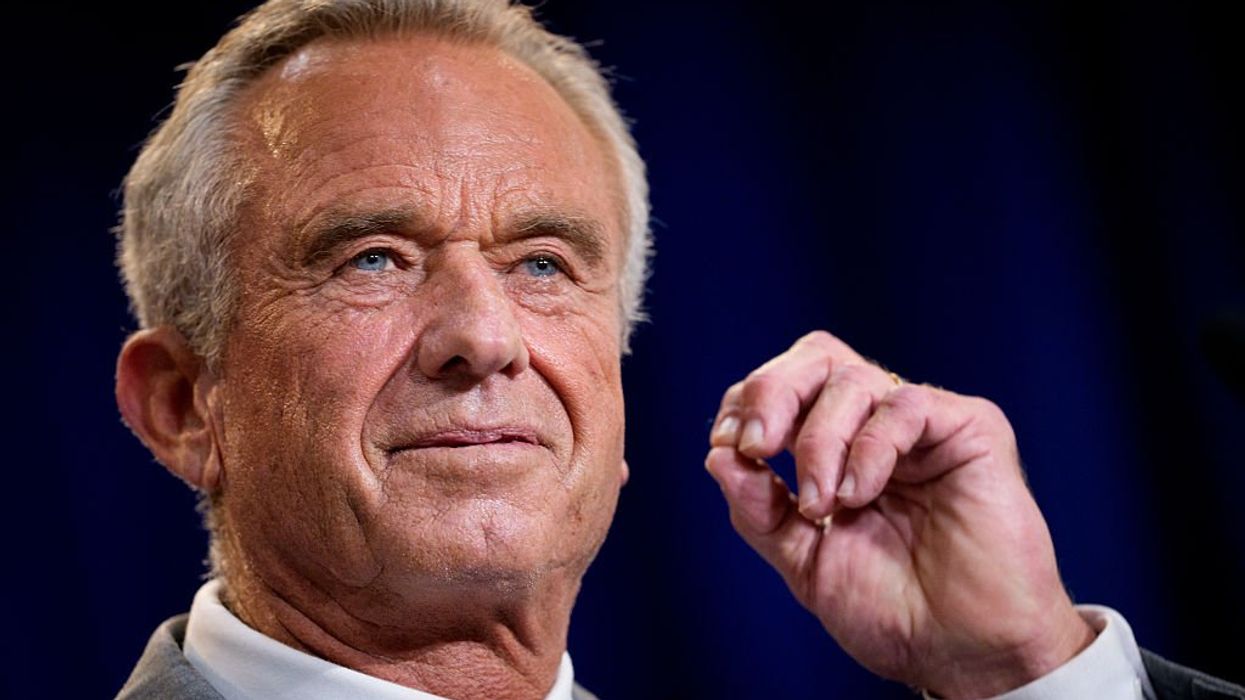
Photo by Andrew Harnik/Getty Images

There appears to have been a serious threat of relational and ideological bias on the Advisory Committee for Immunization Practices.
Health and Human Services Secretary Robert F. Kennedy Jr. last week canned all 17 members of the Advisory Committee on Immunization Practices — the federal panel whose vaccine recommendations become official policy at the Centers for Disease Control and Prevention and apply to the entire American population once adopted by the agency's director.
Kennedy accused the ACIP of "malevolent malpractice" and vowed to appoint "highly credentialed physicians and scientists who will make extremely consequential public health determinations by applying evidence-based decision-making with objectivity and common sense."
Among the eight individuals whom Kennedy has appointed to the committee are:
The removal and replacement of members of the committee is a wish fulfilled for longtime critics of the ACIP and a nightmare realized for medical and pharmaceutical establishmentarians satisfied with the status quo.
Those in the establishmentarian camp now clutching pearls over Kennedy's actions appear eager to ignore or downplay the conflicts of interest, ideological bents, and questionable decisions that were apparently commonplace on the committee.
The ACIP's members as of April 2025 were:
All 17 of the members were appointed by the Biden administration. Thirteen were appointed last year.
RELATED: RFK Jr. torches vaccine panel to make consequences count again
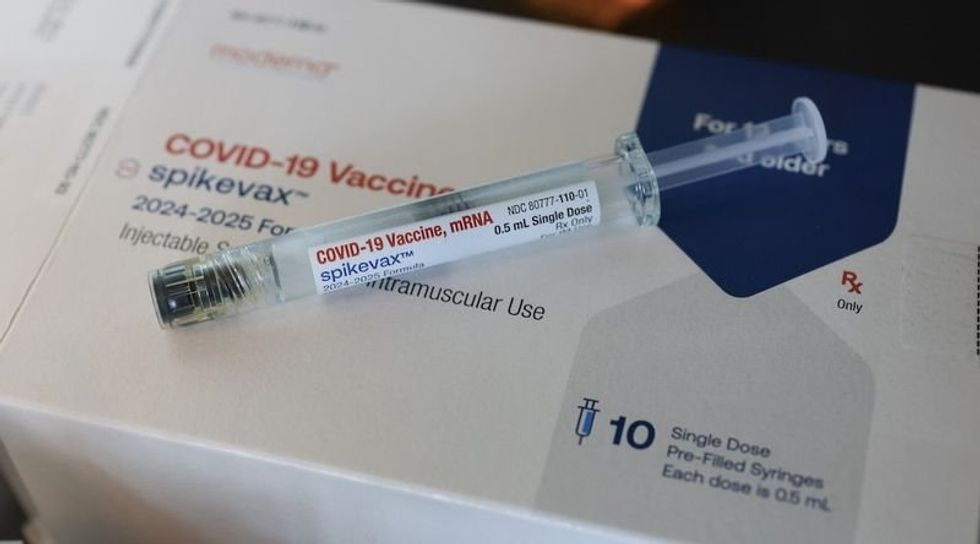
Data provided on OpenPaymentData.CMS.gov, a site managed by the U.S. Centers for Medicare and Medicaid Services, provides some insights into just how cozy some of the former members were with the organizations whose products they were tasked with scrutinizing.
The website indicates that between 2017 and 2023:
According to the HPV IQ subpage on the University of North Carolina at Chapel Hill's Gillings School of Global Public Health website, Brewer "has received grants from and/or served on paid advisory boards for Pfizer, Merck, [GlaxoSmithKline LLC], FDA, CDC, and NIH."
The Defender reported in 2023 that Brewer — who suggested in 2023 that the "U.S. needs to get on an annual [COVID-19 vaccine] schedule, as we do for seasonal flu vaccination" — served on different paid Merck human papillomavirus boards since 2011 and served as a general consultant for the company for several years.
'They have a big job to do.'
Brewer reportedly received over $500,000 in grant funding to study HPV vaccine uptake from Merck and over $400,000 from Pfizer to "study how trainings might improve physician perceptions and recommendations of the HPV vaccine."
A Science investigation published in March downplayed the possible impact of Big Pharma ties among ACIP members, claiming that five of the 13 physicians on the committee prior to Kennedy's purge received no Big Pharma payments in the "several years before the service began" and that the various kinds of payments from drugmakers that eight other members received "averaged just over $4000 a year, nearly $3000 less than the average for all U.S. specialist physicians."
Blaze News reached out to Asturias, Brewer, Brooks, Chen, Chu, Maldonado, and Shaw for comment.
Brewer told Blaze News that his "last research grant from a pharmaceutical company ended nine years ago, in 2016," and the numbers provided above "are about right" and that "the actual numbers are higher by maybe $10K and change."
Brewer added, "I wish the new ACIP committee members well. They have a big job to do," then referred Blaze News to a recent article in Science, which notes that "the new panel members have been authors on about 78% fewer vaccine-related papers than the ousted members."
Helen Chu joined Democratic Sen. Patty Murray (Wash.) to complain at a press conference on Thursday about the firings. Murray called the removal of Biden administration appointees a "dangerous, practically unthinkable step to undermine public health and vaccine confidence."
Chu, meanwhile, characterized the previous work of the ACIP as "transparent" and "unbiased."
Contrary to Chu's suggestion, biases ran deep on the panel in years past. While some of these biases may have been professional, others were ideological.
Noel Brewer, for instance, is a 2020 Biden donor whose social media history signals a possible DEI-lensed preoccupation with race.
'We must ask whether our own research, teaching, and service are intentionally antiracist.'
Brewer kicked off 2023 complaining that AI tools like ChatGPT sounded "straight, white and probably a few other things too." Months later, Brewer suggested that the lack of diversity in the authorship of certain textbooks was indicative of "white supremacy culture in academia." When discussing academic tenure and promotion decisions in September 2023, Brewer claimed that "fit, culture, and so on are tools of white supremacy."
Oliver Brooks — criticized in 2022 by Food and Drug Administration Commissioner Marty Makary for reportedly voting in favor of recommending that kids ages 5-11 receive COVID-19 vaccine booster shots without outcomes data — is a repeat donor to Democratic politicians including Los Angeles Mayor Karen Bass, Georgia Sen. Raphael Warnock, and failed presidential candidate Kamala Harris.
Like Brewer, his outlook appears tinged by identity politics.
Amid the Black Lives Matter riots in 2020, Brooks tried to provide an analogy to George Floyd's death in an editorial titled "Police Brutality and Blacks: An American Immune System Disorder" in the Journal of the National Medical Association in which he stated that the "country as a whole sets stereotypes as well as biases against black Americans which inevitably leads to social misinterpretation of the safety of Americans when a black person is present."
Brooks also noted, quoting another article, "We must ask whether our own research, teaching, and service are intentionally antiracist and challenge the institutions we work in to ask the same."
When Americans were protesting in 2020 in favor of reopening the country, Brooks framed the matter in identitarian terms on C-SPAN, noting, "If you look at those protesting to open up the environment — I prefer to use the term 'environment' as opposed to 'the economy' because it's not about money; it's about lives — most, I won't say all, most of the protesters are white or not inclusive of African-Americans or LatinX individuals."
Like some of her former colleagues on the panel, Sybil Cineas apparently has found it difficult to separate medicine from racial concerns or vice versa.
For instance, Cineas, listed as a member of the advisory group for Brown University's Office of Belonging, Equity, Diversity, and Inclusion, signed an open letter in 2021 to Tulane University's board of trustees, which complained of a "pervasive culture of White Supremacy" in the medical profession that "is perpetuated by the deeply hierarchical power structures of academic medicine."
Kennedy noted in a June 9 op-ed that the point of "retiring" the committee members, including those "last-minute appointees of the Biden administration," was to help restore the public's trust "that unbiased science guides the recommendations from our health agencies."
"The committee has been plagued with persistent conflicts of interest and has become little more than a rubber stamp for any vaccine," wrote the health secretary. "It has never recommended against a vaccine — even those later withdrawn for safety reasons. It has failed to scrutinize vaccine products given to babies and pregnant women. To make matters worse, the groups that inform ACIP meet behind closed doors, violating the legal and ethical principle of transparency crucial to maintaining public trust."
'Most of ACIP's members have received substantial funding from pharmaceutical companies.'
When painting the committee as a succession of compromised members, Kennedy referred to a decades-old investigation that found a "web of close ties" between the CDC and the companies that make vaccines.
RELATED: CDC knew the COVID jab was dangerous — and pushed it anyway
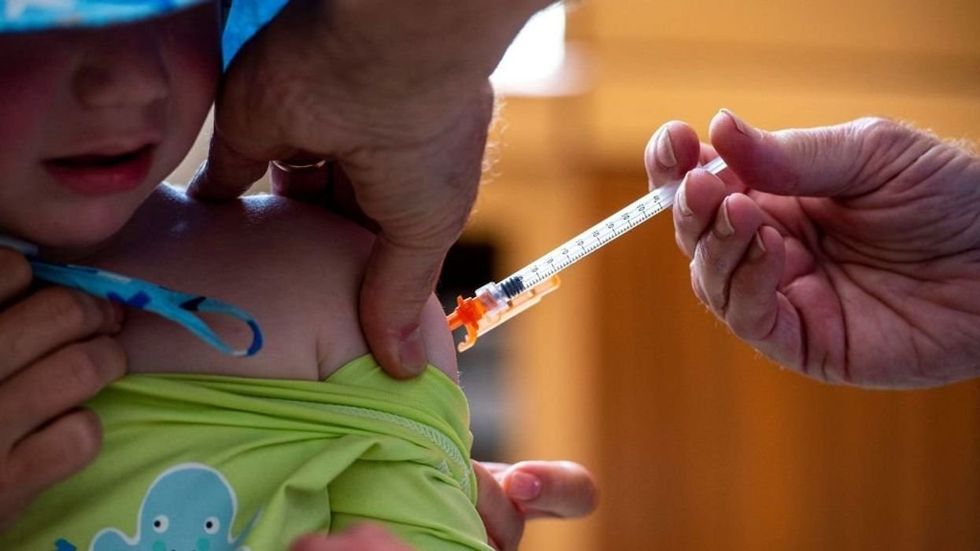
He also highlighted the revelation that four of the eight then-ACIP members who voted in 1997 to recommend routine vaccination of infants with the rotavirus vaccine had financial ties to the very pharmaceutical companies developing such vaccines. This was especially damning because the recommended vaccine was subsequently withdrawn on account of its ruinous and in some cases deadly side effects.
Although members are now barred from holding stocks or serving on advisory boards associated with vaccine makers, Kennedy indicated that "these conflicts of interest persist."
"Most of ACIP's members have received substantial funding from pharmaceutical companies, including those marketing vaccines," wrote the health secretary.
'Ending the conflict of interest is the first critical step to restoring unbiased, science-based analysis of safety and efficacy of vaccines.'
The health secretary emphasized that the "malpractice" impacts Americans nationwide, in part due to the committee's "stubborn unwillingness to demand adequate safety trials before recommending new vaccines for our children."
Kennedy claimed that "a compliant American child receives between 69 and 92 routine vaccines (depending on brand/dictated dosage) from conception to 18 years of age."
"ACIP has recommended each of these additional jabs without requiring placebo-controlled trials for any of them," said Kennedy. "This means that no one can scientifically ascertain whether these products are averting more problems than they are causing."
Peter Hotez, a cable news vaccine promoter and the founding dean of the National School of Tropical Medicine at Baylor College of Medicine, was among the medical establishmentarians to recently contest this claim about placebo-controlled trials, saying, "That's simply not true."
'The pharmaceutical companies have been running a regulatory capture scam.'
Kennedy claimed in response that such protesters were wrong — and made sure to bring receipts.
— (@) 1750096500
The health secretary also indicated on Friday that the ACIP will "institute bias policies recommending that ACIP panelists recuse themselves from decisions in which their current or former clients have a financial interest."
Blaze News senior editor Daniel Horowitz said, "This is a nuclear bomb on the biomedical security state."
"The heart of the problem with vaccine safety stems from the fact that the pharmaceutical companies have been running a regulatory capture scam," continued Horowitz. "They place scientists and doctors on their payroll and then insert those individuals into government advisory positions. Ending the conflict of interest is the first critical step to restoring unbiased, science-based analysis of safety and efficacy of vaccines."
RELATED: Who is bankrolling the anti-MAHA movement?
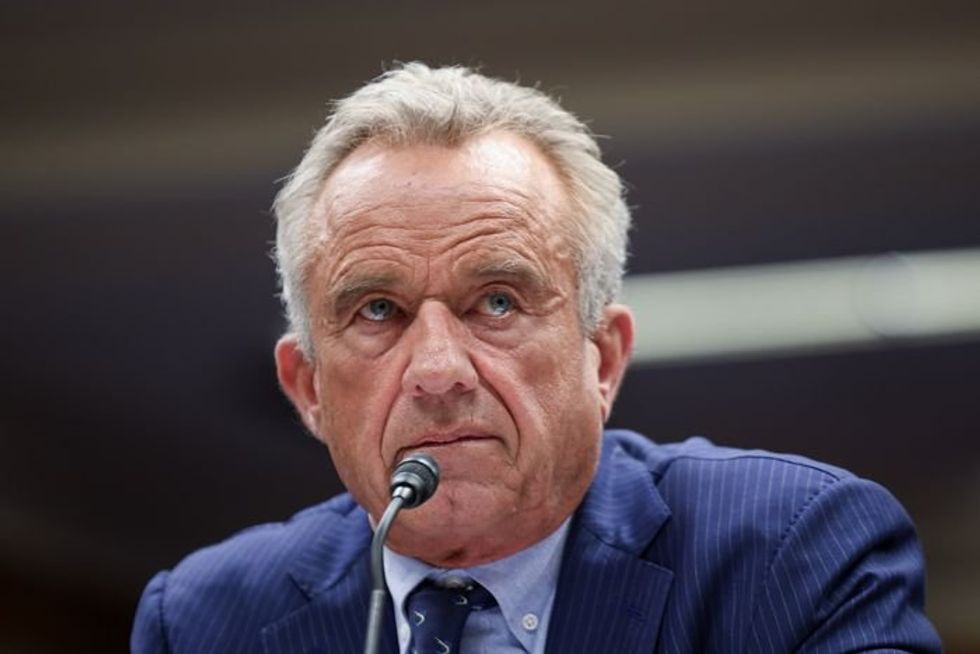
Children's Health Defense, which was chaired by Kennedy from 2015 to 2023, similarly celebrated the news.
Mary Holland, president and CEO of CHD, told Blaze News in a statement that Kennedy's announcement "marks a pivotal advancement in the radical transparency he promised the country."
"Children's Health Defense has long highlighted the conflicts of interest involving the ACIP committee. It is unbelievable that ACIP members were allowed to participate in deliberations regarding a product in which they might have a financial stake," said Holland. "No wonder the committee consistently approved every vaccine for use, including those that were proven unsafe and subsequently removed shortly after approval. Ending this practice represents a significant step forward in restoring the public’s trust in our health agencies."
Of course, Kennedy's actions did not please everyone.
'I've never seen anything this damaging to public health happen in my lifetime.'
Massachusetts Sen. Elizabeth Warren, one of the Democratic lawmakers who has received a fortune in donations from the pharmaceutical industry, called the firing of the ACIP members "a public health disaster."
Paul Offit, director of the Vaccine Education Center at Children's Hospital of Philadelphia, was among the many who concern-mongered last year about the impact that Kennedy could have if afforded power and access in the Trump administration.
Last week, Offit wrote, "RFK Jr. will do everything he can to make sure that all vaccines are no longer mandated and to make vaccines less available, less affordable and more feared. This is only the beginning."
One of the dismissed ACIP members complained to CNN, "I've never seen anything this damaging to public health happen in my lifetime."
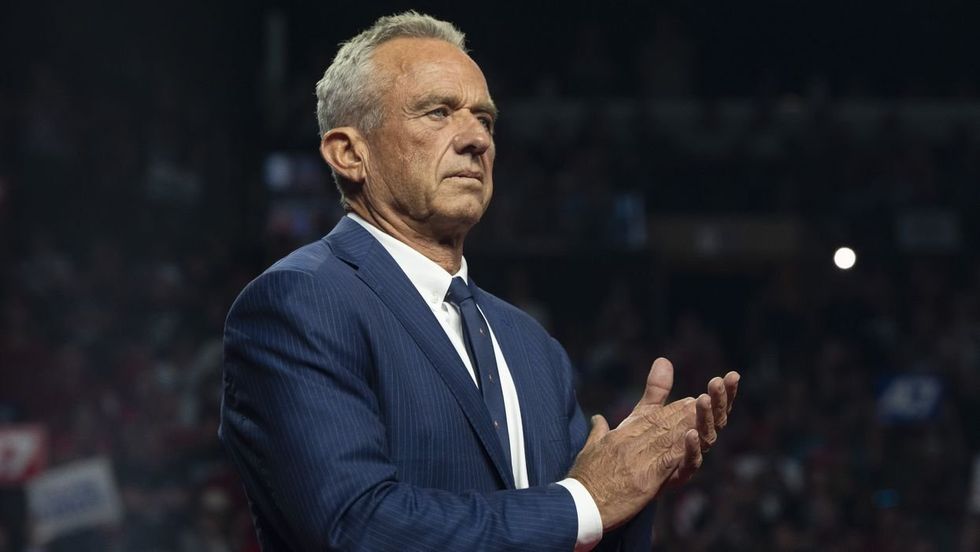
The ex-member, whose name was not disclosed, added, "I'm shocked. It's pretty brazen. This will fundamentally destabilize vaccination in America."
Bruce Scott, the president of the American Medical Association, similarly expressed distress last week, claiming that the action undermines public trust "and upends a transparent process that has saved countless lives."
Tina Tan, president of the Infectious Diseases Society of America, claimed that Kennedy's "allegations about the integrity of CDC’s Advisory Committee on Immunization Practices are completely unfounded."
BlazeTV host Steve Deace, considering the action within the broader context of the MAHA movement, told "Blaze News: The Mandate" last week that President Donald Trump's decision to make Kennedy the health secretary "might be the closest we're ever going to get in America to a tribunal on what happened during that time [the pandemic]."
The firings at the ACIP are "the closest thing to real consequences — people losing their jobs — that we have seen," added Deace.
— (@) 1750096500
HHS indicated in a statement that it will convene its next meeting June 25 through June 27 at the CDC headquarters in Atlanta.
Like Blaze News? Bypass the censors, sign up for our newsletters, and get stories like this direct to your inbox. Sign up here!